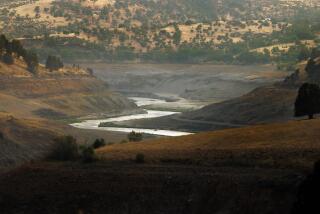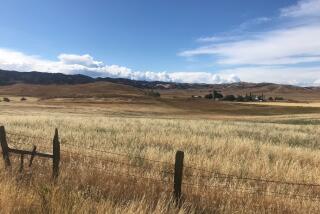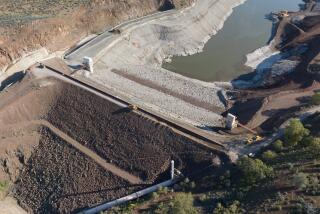JAPAN : Eddy of New Thinking Makes Waves Amid Old
- Share via
TOKYO — It seemed like business as usual here last week when one of Japan’s fiercest environmental controversies ended in victory for the construction industry.
After 27 years of battle, the government announced that it will begin operation of a mammoth dam on the Nagara River--a project that had come to symbolize the lopsided struggle of environmentalists against developers.
But this week, Japan seemed to crackle with change when Tokyo Gov. Yukio Aoshima did what no politician here has ever done before: Citing the ethical need to honor a campaign promise, he axed a major public project--the Tokyo Expo--midway through development.
The tale of two projects illustrates how difficult it has become to answer the age-old question about Japanese politics: Is it changing?
A look at the Nagara controversy suggests that the answer is no.
The dam was first approved in the early 1960s, when Japan was embarking on go-go economic growth and needed a ready source of water for industrial use. Even after water demand slowed, construction officials argued that the project was needed for flood control and the prevention of saltwater contamination.
Opponents countered that the dam was unnecessary, unsafe and environmentally unsound.
The Nagara, located in Mie prefecture in south-central Japan, is one of only three surviving free-flowing rivers and home to 88 fish species. Environmentalists argued that the dam would wipe out the nation’s only natural sanctuary for the satsukimasu salmon and the richest source of shijimi clams. They also argued that less than 20% of the water was actually needed and that the dam would in fact increase flood dangers by weakening embankments.
But project backers had powerful political friends. Chief among them was Shin Kanemaru, the former kingpin of the Liberal Democratic Party who, as construction minister, issued the permits in 1968. Kanemaru reportedly threatened to ruin the reelection chances of any politician who dared stand in the project’s way.
Construction began in 1988 and was completed in March at a cost of nearly $2 billion.
To stop the project, dam opponents tried lawsuits, international appeals and even demonstrations in canoes. But when the Socialists came to power in a three-party ruling coalition last year--and installed a Socialist construction minister for the first time in history--environmentalists dared to hope that the Nagara might at long last be saved.
It was not to be. Last week, in what critics blasted as another betrayal of Socialist principles, Construction Minister Koken Nosaka gave the go-ahead for full-scale operation of the dam.
“Is the Socialist Party that calls itself the ‘People’s Party’ or ‘Environmental Party’ dead?” one irate party member asked.
*
Maybe not dead but, as one newspaper put it, “pushed out of the ring by the bureaucrats.”
In a nation ruled by a cozy triangle of politicians, bureaucrats and industry, what else is new? people asked.
Yukio Aoshima is. In a startling victory, the Tokyo governor was elected in April over the political Establishment’s anointed choice, a former bureaucrat.
Pledging to bring in new thinking, he called the Tokyo Expo a waste of taxpayer money and vowed to ax it.
The project was hatched in 1988 during the “bubble economy” days of easy credit and fast money as a catalyst for development in the Tokyo Bay area. It was scheduled to open next year, but Aoshima said there was no need for it.
Backers warned that the Tokyo government would lose millions of dollars already invested and even more in compensation to would-be participants for losses incurred.
Businesses had started building pavilions, for instance, or begun to make T-shirts and souvenirs. And the local Assembly had overwhelmingly passed a non-binding resolution, 100-23, to proceed with the project.
But in the end, Aoshima stuck to his pledge.
“Reversing my pledge would only betray the expectations of the people of Tokyo, deepening distrust in politics and leading to a democratic crisis,” said the governor, who added that his fretting over the issue not only caused him to lose weight but also sent his dog to the animal hospital with stomach pains.
(BEGIN TEXT OF INFOBOX / INFOGRAPHIC)
Clash Over the Nagara
The dam was built to provide water for industrial use and is defended as necessary for flood control. Opponents contend the project is environmentally unsound and would actually increase flood dangers.
More to Read
Sign up for Essential California
The most important California stories and recommendations in your inbox every morning.
You may occasionally receive promotional content from the Los Angeles Times.











